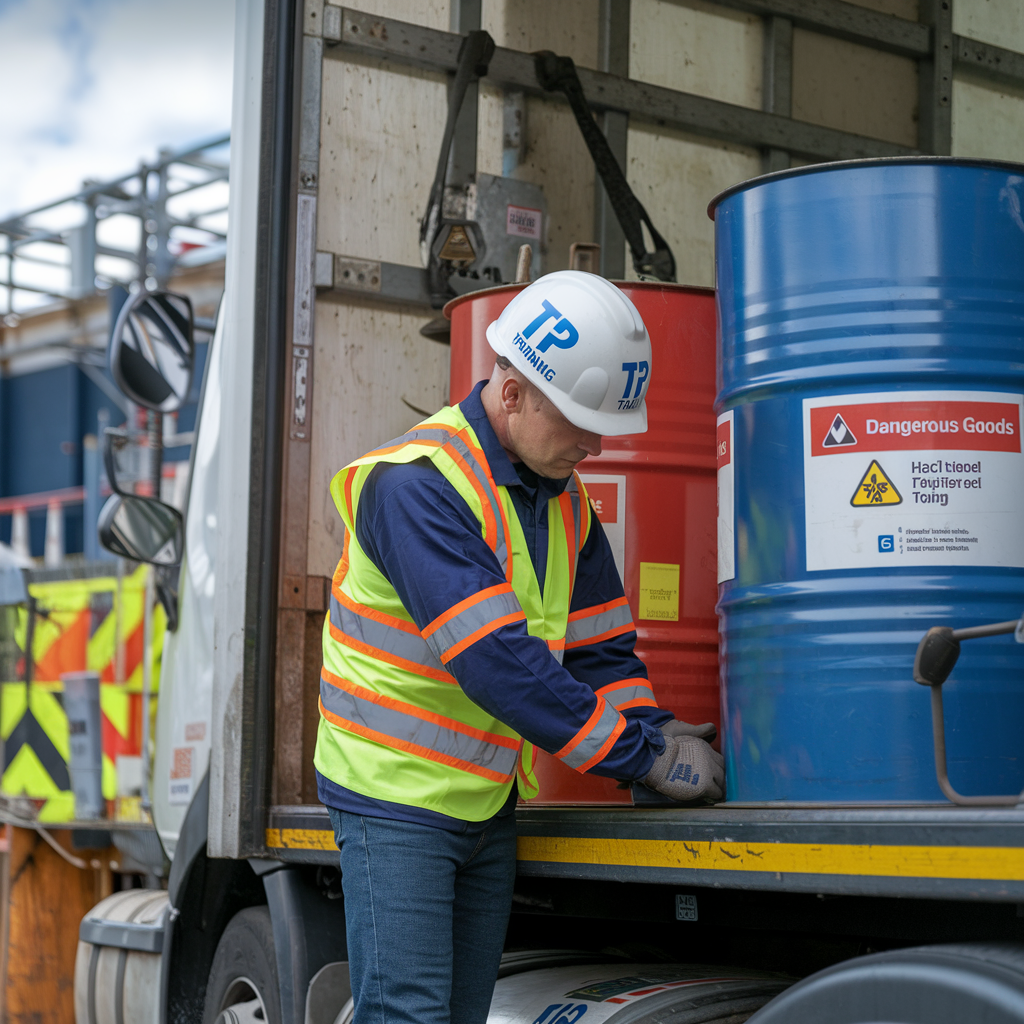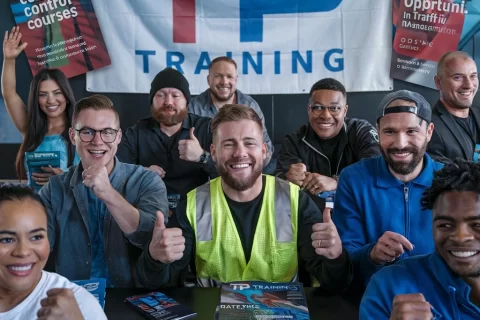
The Importance of Practical Training for Dangerous Goods Drivers
Transporting dangerous goods is a high-risk job that requires more than just theoretical knowledge. Whether it’s chemicals, explosives, or flammable materials, drivers must know how to handle these substances safely to prevent accidents and ensure compliance with regulations. That’s where practical exercises come into play.
At TP Training, we emphasize hands-on learning in our Dangerous Goods Driver’s License Course. We believe that real-world practice is essential to fully prepare drivers for the complexities of transporting hazardous materials. By simulating real-life scenarios, our course ensures that participants are equipped to confidently manage their responsibilities and protect themselves, the public, and the environment.
Why Practical Exercises Are Critical for Dangerous Goods Drivers
- Understanding the Real RisksWhen transporting dangerous goods, the margin for error is razor-thin. One small mistake could lead to a hazardous spill or explosion, putting lives at risk and causing significant environmental damage. In our Dangerous Goods Driver’s License Course, practical exercises allow participants to experience these risks in a controlled environment. From properly securing loads to learning the correct emergency response procedures, hands-on training helps drivers understand what’s at stake and how to mitigate dangers.
- Mastering the Handling and Securing of Hazardous MaterialsOne of the most important aspects of transporting dangerous goods is ensuring that materials are loaded, secured, and transported according to safety regulations. Our practical exercises cover everything from correct packaging methods to using specialized equipment, such as protective containers and securement devices. Drivers practice securing different types of dangerous goods, so they know exactly how to handle various materials and ensure they are transported without incident.
Additionally, our training includes emergency drills that simulate real-world hazards, such as spills or fires, helping drivers prepare for the worst-case scenarios.
- Building Confidence in Navigating Dangerous Goods RegulationsAustralia’s regulations on dangerous goods transportation are strict and constantly evolving. Theory alone isn’t enough to ensure compliance. Drivers must practice how to apply these regulations in real-world situations. In the practical component of our course, we walk participants through the proper documentation processes, vehicle labeling requirements, and reporting obligations they need to stay compliant with government safety standards.
Our instructors are experts in dangerous goods regulations, and they provide real-time feedback during these exercises, helping drivers navigate complex compliance issues with confidence.
What You’ll Learn in TP Training’s Dangerous Goods Driver’s License Course
Our Dangerous Goods Driver’s License Course goes beyond the basics to offer a comprehensive learning experience. Here’s what participants can expect to gain:
- Safe Handling of Hazardous Materials: Learn how to safely load, transport, and unload dangerous goods, ensuring they arrive at their destination without incident.
- Emergency Response Protocols: Participate in emergency drills that simulate real-life scenarios, such as chemical spills, fires, and accidents. Understand how to respond effectively in these situations to minimize risk.
- Regulatory Compliance: Master the required documentation, labeling, and reporting procedures for transporting dangerous goods, ensuring full compliance with both federal and state laws.
- Practical Problem-Solving: Develop critical thinking and problem-solving skills through real-world exercises, where quick decisions can mean the difference between safety and disaster.
Why Choose TP Training for Your Dangerous Goods License?
1. Real-World Experience
The key to effective dangerous goods transport is practical experience. At TP Training, we don’t just teach theory—we put it into practice. Our practical exercises provide a real-world context, helping drivers to not only learn but also experience how to transport hazardous materials safely.
2. Industry-Recognized Certification
Upon completing our Dangerous Goods Driver’s License Course, participants will receive a SafeWork NSW-recognized certification, qualifying them to transport dangerous goods across Australia. This certification is critical for career advancement in industries such as mining, chemicals, and manufacturing.
3. Hands-On Learning from Expert Trainers
Our trainers are industry professionals who have extensive experience in dangerous goods transportation. They offer practical insights and guidance, ensuring that participants are fully prepared to apply what they’ve learned on the job.
Course Benefits: Hands-On Learning for Immediate Application
Our Dangerous Goods Driver’s License Course offers participants the chance to:
- Gain Practical Experience: Practice handling real hazardous materials, securement devices, and emergency response techniques.
- Build Confidence: Through repeated practical exercises, drivers develop the confidence to handle dangerous goods safely and efficiently in real-world scenarios.
- Stay Compliant: Our training includes up-to-date regulatory compliance exercises, so drivers understand the legal obligations they must meet to avoid fines or penalties.
Conclusion: Prepare for the Real World with TP Training
Practical exercises are not just an add-on to dangerous goods driver training—they are essential. By practicing real-world scenarios in a safe, controlled environment, you can gain the confidence and skills needed to handle hazardous materials safely and ensure regulatory compliance.
At TP Training, we are committed to providing you with the most comprehensive and hands-on learning experience possible. Our Dangerous Goods Driver’s License Course equips you with the skills you need to excel in this challenging and rewarding field.
Are you ready to take your training to the next level? Enroll now and start building the skills you need to safely transport dangerous goods and protect the public, the environment, and your future career.



